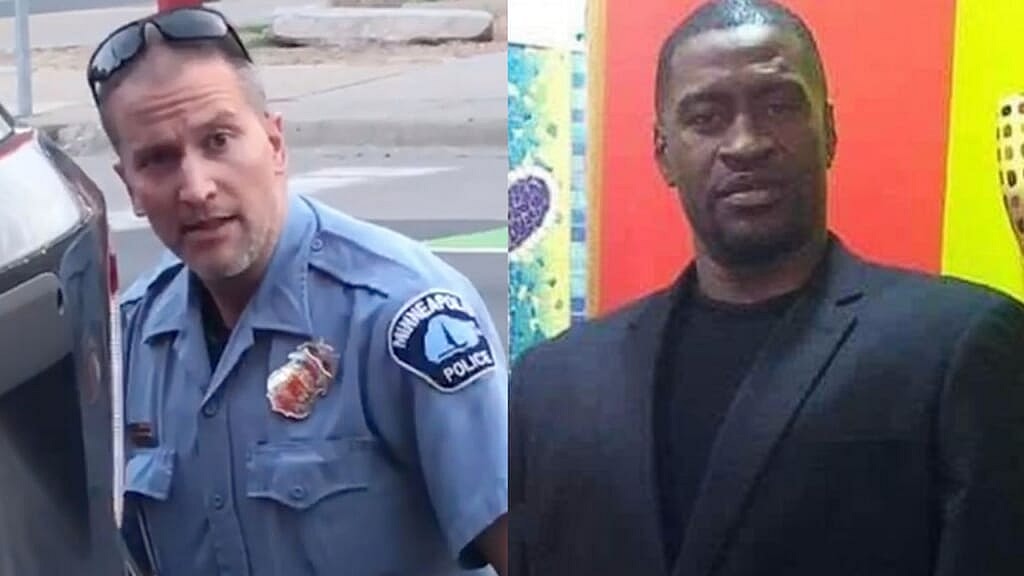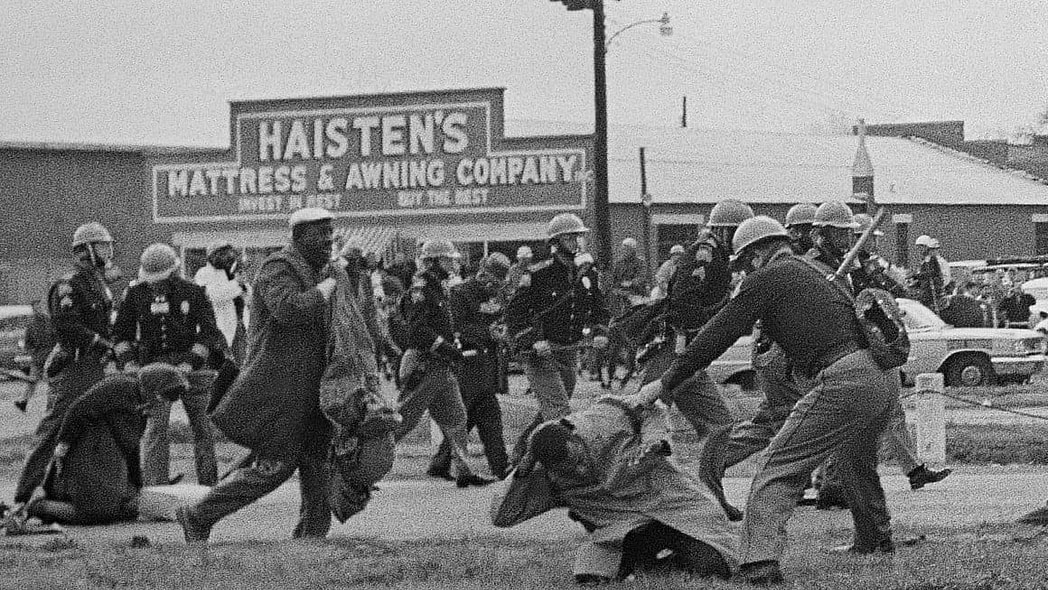Vice President Kamala Harris’s visit Sunday to Selma, Alabama to commemorate the 57th anniversary of the “Bloody Sunday” civil rights march is a reminder that the struggle for equal rights continues today. Thankfully, we have a U.S. Justice Department true to its name, fighting for justice for all Americans.
On March 7, 1965, 25-year-old civil rights leader John Lewis led more than 600 nonviolent marchers over the Edmund Pettus Bridge in Selma at the start of what was planned as a 54-mile march for racial justice to the state capital of Montgomery.
A key goal of the marchers was to remove barriers that prevented Black people from voting throughout much of the South. In Dallas County, where Selma is located, a majority of the county’s population was Black, but only 2% of the county’s registered voters were Black.
State police and deputy sheriffs wearing gas masks tear-gassed the marchers and brutally beat Lewis and others with clubs, whips and rubber tubing wrapped in barbed wire, as the marchers remained nonviolent. A state trooper cracked Lewis’s skull and nearly killed him.

But the forces of racism and injustice did not win.
TV news cameras captured the savage assault on marchers and it aired that night around the nation, horrifying millions. The Justice Department won a federal court order that permitted the march from Selma to Montgomery to resume March 21, protected by National Guard troops placed under federal command.
Most importantly, public opinion was swayed in favor of voting rights legislation, enabling President Lyndon Johnson to win congressional passage of the Voting Rights Act, which he signed into law on Aug. 6, 1965.
John Lewis went on to serve as a Democratic congressman representing Georgia from 1987 until his death in July 2020, continuing his crusade for justice until he died in office.
The Justice Department under the leadership of Attorney General Merrick Garland is continuing the crusade today.
In February, the department won hate crime convictions against the three White men convicted earlier in state court of murdering unarmed Black jogger Ahmaud Arbery in Georgia.
Also in February, the Justice Department won convictions against three former Minneapolis police officers for violating the civil rights of George Floyd, another unarmed Black man. Two of the former officers were also convicted of failing to intervene to stop then-officer Derek Chauvin from murdering Floyd in 2020 by kneeling on his neck for over nine minutes, as the handcuffed Floyd desperately cried out that he couldn’t breathe.

These convictions, along with Chauvin’s murder conviction in state court, were historic and extraordinary. For most of American history, Black lives did not matter in our courts, as White racists literally got away with murder when killing Black Americans.
While the Justice Department under Garland has also fought Republican voter suppression efforts, the battle has been made harder by two Supreme Court decisions severely weakening the 1965 Voting Rights Act.
The Supreme Court eliminated a key provision of the Voting Rights Act in 2013, ruling that states with a history of racial discrimination in elections no longer need advanced federal approval to change their election laws. This has enabled Southern states to enact voter suppression laws that disproportionately harm Black people.
A Supreme Court decision in 2021 further weakened the Voting Rights Act, rejecting an effort by the Democratic National Committee to overturn Arizona laws that outlawed ballot collection boxes and invalidated ballots cast in the wrong precinct.
Unfortunately, bills passed by the U.S. House this year to fight Republican voter suppression efforts by restoring provisions of the Voting Rights Act and making other reforms have been blocked by Senate Republicans. Instead of trying to compete fairly for votes, Republicans want to reduce the number of Democratic-leaning voters eligible to cast ballots.
Efforts by President Biden, Vice President Harris and Attorney General Garland to oppose racism aimed at Black Americans follow in the footsteps of past Democratic administrations.
President John F. Kennedy at first feared that championing civil rights would cost Democrats White votes in the South. But after concluding that fighting racism was a moral issue, he embraced the cause of racial equality as no president up to that time had ever done.

In 1961, for example, Attorney General Robert Kennedy sent 400 federal marshals to the South to protect freedom riders, who had been beaten by White racists and sometimes arrested when protesting segregation at interstate bus stations and on buses.
In addition, President Kennedy mobilized the National Guard and sent the troops to the all-White University of Mississippi in 1962 to allow Black Air Force veteran James Meredith to integrate the school.
Kennedy also federalized the Alabama National Guard in 1963 to allow two Black students to integrate the University of Alabama after Democratic Gov. George Wallace — who vowed to preserve “segregation now, segregation tomorrow, and segregation forever” in his inaugural address — carried out his promise to literally stand in the schoolhouse door in a failed effort to keep them out.
While Kennedy was unable to win congressional approval of wide-ranging civil rights legislation he proposed, President Johnson managed to do so.

Martin Luther King said shortly before his assassination in 1968: “We shall overcome because the arc of the moral universe is long but it bends toward justice.”
The victories over injustice in the civil rights era would not have been possible without the support of Presidents Kennedy and Johnson, their attorneys general and lawmakers in both parties. Under the leadership of President Biden, Vice President Harris, Attorney General Garland and Democrats in the House and Senate, the struggle continues.
May the heroism of John Lewis and the marchers on the Edmund Pettus Bridge 57 years ago continue to inspire us to put America’s long history of systemic racism behind us. And may we march forward as they did to overcome injustice and uphold the precious voting rights of all Americans.

Donna Brazile is an ABC News Contributor, veteran political strategist, an adjunct professor at Georgetown University, and the King Endowed Chair in Public Policy at Howard University. She previously served as interim Chair of the Democratic National Committee (DNC) and of the DNC’s Voting Rights Institute. She managed the Gore campaign in 2000 and has lectured at more than 225 colleges and universities on race, diversity, women, leadership and restoring civility in politics. Brazile is the author of several books, including the New York Times’ bestseller “Hacks: The Inside Story of the Break-ins and Breakdowns That Put Donald Trump in the White House.” @DonnaBrazile
TheGrio is now on your TV via Apple TV, Amazon Fire, Roku, and Android TV. Also, please download theGrio mobile apps today!”


